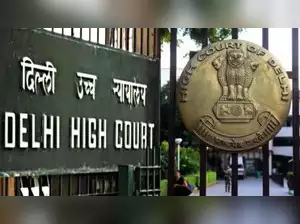New Delhi, July 11: Delhi High Court judge Amit Sharma recused himself on Thursday from hearing a plea by the National Investigation Agency (NIA) seeking the death penalty for separatist leader Yasin Malik in a terror funding case, as per a report by India Today.
The case, which was listed before a division bench headed by Justice Prathiba M. Singh due to a change in the roster of judges handling such matters, will now be heard on August 9 by a different bench.
Yasin Malik, the chief of the Jammu and Kashmir Liberation Front, who is currently serving a life term in Tihar jail, appeared virtually for the court proceedings. The court has directed that he will continue to appear virtually on the next date.
On May 29 last year, the High Court issued a notice to Malik regarding the NIA’s plea for a death sentence and requested his presence for subsequent hearings. Jail authorities filed an application seeking permission for Malik’s virtual appearance, citing his status as a “very high-risk prisoner” and concerns for public order and safety. The High Court granted this request.
In the ongoing matter, Malik was sentenced to life imprisonment on May 24, 2022, by a trial court after being found guilty of offences under the stringent Unlawful Activities (Prevention) Act (UAPA) and the Indian Penal Code. Malik had pleaded guilty to the charges, including those under the UAPA, leading to his conviction and life sentence.
The NIA, however, appealed against the life sentence, arguing that a terrorist should not receive a lesser sentence simply because of a guilty plea, as it undermines the sentencing policy. The NIA contends that a life sentence is insufficient for the crimes committed by terrorists, particularly when the nation and families of soldiers have suffered significant losses. They argue that the trial court’s decision, which found that Malik’s crimes did not meet the “rarest of the rare” standard for the death penalty, is legally flawed and unsustainable.
The trial court had acknowledged that Malik’s crimes struck at the “heart of the idea of India” and were aimed at forcefully seceding Jammu and Kashmir from the Union of India. Despite this, the court ruled that the case did not warrant the death penalty.
The high court’s forthcoming decision will be closely watched as it addresses the NIA’s push for the death penalty in this high-profile case.




